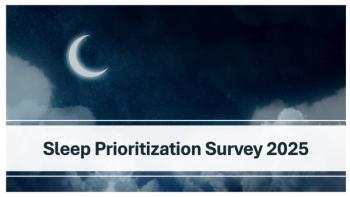
CPAP Use — and Adherence — Can Cut Risk of Hospital Readmission in People with OSA, CVD
But less than one-third of patients are highly adherent to continuous positive airway pressure therapy, researchers found.
A new report underscores the benefits of obstructive sleep apnea therapy for people with cardiovascular disease, but it also highlights the critical role of treatment adherence in order to activate those benefits.
The links between obstructive sleep apnea (OSA) and cardiovascular disease have been widely reported. Disruptions in oxygen associated with the sleep disorder can put strain on a patient’s heart and blood vessels, and, over time, increase the risk of a serious cardiac event.
The primary method of treatment for OSA is continuous positive airway pressure (CPAP) therapy. Previous studies have suggested that CPAP therapy can reduce long-term healthcare costs among people with OSA. Yet, such benefits only accrue if patients utilize their devices on a consistent basis.
In the new report,
“Cardiovascular disease is the number one killer of older adults in the world,” Albrecht said, in a press release. “Older adults with comorbid cardiovascular disease and obstructive sleep apnea are a vulnerable population at high risk for hospital readmission.”
Albrecht and her co-authors retrospectively examined a sample of 1,301 Medicare beneficiaries who were at least 65 years old, had both OSA and cardiovascular disease, were hospitalized, and initiated CPAP use. The data covered the period of 2009-2013. The median age of enrollees was 73 years, and a slim majority (53%) were men. The authors tracked those patients for 25 months, using the number of times patients charged their CPAP machines as a proxy for adherence. Patients were then subdivided into three adherence categories: non-adherent, partially adherent, or highly adherent. When the investigators compared those adherence categories to 30-day hospital readmission rates, they found a significant divergence between patients who used the CPAP device regularly and those who did not. Their results were
“Our data show that successful treatment of obstructive sleep apnea can greatly reduce the risk of 30-day hospital readmission,” Albrecht said.
Specifically, the study found that people in the “highly adherent” category of CPAP use had an odds ratio of readmission of just 0.41 compared with those with low adherence. In other words, those with high adherence were 60% less likely to be rehospitalized within 30 days.
Though the study demonstrated the value of adherence, it also showed why clinicians cannot take for granted that patients will be adherent to CPAP therapy. Less than 1 in 3 patients (28.5%) were in the “highly adherent” category. One-third (33%) had low adherence, and the rest were categorized as partially adherent.
When investigators examined specific cardiovascular conditions, they found that CPAP had a significant benefit among those with heart failure, but not among those with other cardiovascular diseases.
Albrecht said the study is further evidence that CPAP devices can improve patients’ quality of life and also drive down healthcare costs, since readmissions are a major driving factor in the high cost of healthcare. However, she said such benefits rely not only on patient adherence to CPAP machines, but also on the identification and diagnosis of people with sleep apnea.
“If patients show signs of obstructive sleep apnea, such as snoring, daytime sleepiness, or poor sleep quality, they should talk to their doctor, and doctors should ask about sleep, especially when caring for older adult patients with cardiovascular disease,” she said.
Newsletter
Get the latest industry news, event updates, and more from Managed healthcare Executive.























